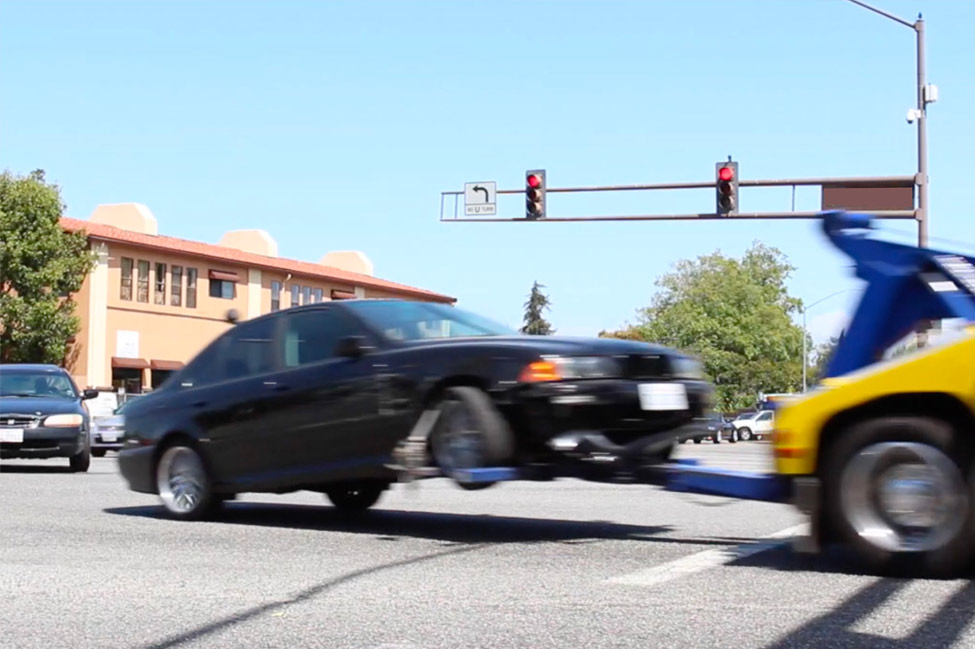Why Smart Tow Company Owners Use Google Ads.
Whether you’ve been in the towing business a while or you’re just starting out, to be successful, you know that finding quality customers is job number one. And while there are motor clubs, auction companies, and Apps that promise lots of calls, unfortunately, the rates these companies pay are nothing compared to cash-paying customers.
The problem, of course, is finding enough cash-paying customers to keep your phone ringing. That is unless you have an optimized Google Ad campaign that helps cash-paying customers find you instead. Rather than looking under every nook and cranny for seemingly hard-to-find customers, smart tow company owners use Google Ads to generate calls.
How do Google Ads Work for Tow Company Owners?
A Google Ad is an online advertisement that shows up in a search result with the word “ad” or “sponsored” next to it. Google Ads usually show above the Google Page listings and organic listings, but they can also show up at the bottom of the page.
When you’re running a Google Ad campaign and someone searches for towing services, depending on many variables, one of your ads may show up. When someone clicks on one of your ads, you are then charged a fee.
For a Google Ad to provide a positive return on investment (ROI), someone must click on one of your ads, call you and eventually pay you for your services. Of course, not all clicks will result in a cash-paying customer. But the better the Google Ad campaign is optimized, the better the ROI.
Of course, optimizing an ad campaign consists of many factors, including proper placement, targeting, budget, interpreting data, and a variety of other working parts.
Where Should Towing Companies Use Google Ads?
When running a Google Ad campaign, you need to consider placement. Ad placement consists of determining the geographic area the ads will be visible, as well as on what devices you want the ads to appear.
Geographic targeting for your ads will depend on population density, traffic patterns, and how quickly your company can respond. For example, if you live in an area with a population of a half million people in a 30 square mile radius, and you have sufficient manpower to respond, you may want to target the entire area. However, if you only have two tow trucks and cannot respond in a timely manner, you’ll want to decrease the size of your targeted area. You don’t want to pay for calls that you don’t have the manpower to service.
When determining device targeting for Google Ads, smart towing company owners insist on mobile-only campaigns. A mobile-only ad campaign is one where your ads only appear on mobile devices, such as smartphones and iPads.
While desktop search for towing-related keywords does exist, compared to mobile, the volume is significantly less. And when you take into consideration the psychology of a motorist conducting a search on mobile versus that of a person on a desktop or laptop device, the value of a mobile-only campaign far surpasses that of desktop campaigns.
A person at home on a desktop has the luxury of surfing the web and patiently looking for the lowest price or some other desired preference. While someone stranded in their car on the shoulder of a highway may view their situation as more dire and will need to find someone who’s willing to help as quickly as possible.
When Should You Run Google Ads?
Determining when to make your Google Ads visible to the public depends mostly on your ability to service the incoming calls. While many ad campaigns are 24/7, if you’re always swamped during morning and evening drivetimes, you may want to consider scheduling your ads outside of those times.
Of course, the goal of running an ad campaign is to ensure that your company is highly visible online during the greatest periods of need. So, if your ads are scheduled only during the graveyard shift when there aren’t many motorists on the road, you’re not going to get a lot of calls.
Regardless of when your ads run, for optimization purposes, you’ll want your ads to be on a set schedule with as few interruptions as possible. A campaign that runs from 7:00 AM to 8:00 PM Monday through Saturday and doesn’t run on Sunday is on a set schedule. If the campaign is paused 3 or 4 times per day or stopped entirely for random days out of the week, these actions diminish the campaign’s ability to perform optimally.
How Much Does Google Ads Cost?
The first question most tow company owners have is, how much does it cost to run Google Ads? To answer this question on its face is akin to giving in to the assertion that advertising is an expense rather than an investment.
Most business owners view advertising as an expense, either because an unscrupulous marketing company has burned them or they’ve failed to measure their return on investment. So, before you close your mind to the idea that advertising is an investment, I suggest that you try it one more time. And this time, focus on ROI rather than simply what it costs.
Determining ROI when running Google Ads consists of attaching a call-tracking number to your ad campaign and recording the calls online. This way, all calls received through the ad campaign are collected and visible in one location. You’ll have the time, date, and phone number of the person calling along with the recordings so you can listen in and determine which ones were cash-paying customers. Of course, you don’t even have to listen to the calls. You can just match the phone numbers of the paid calls to your paid invoice receipts. Then once a week or once per month, you can do a little math to measure the result and make an informed decision about whether your ad campaign is worth it or not.
Smart Tow Company Owners Use Google Ads Because They Work
The towing business is like no other business. Unlike buying furniture or having your kitchen remodeled, towing customers don’t take weeks to look at various options and try to decide what colors and styles work best. When someone has car problems, it’s usually unexpected, and they want it fixed immediately. And because of this unplanned need for towing, advertising the way other businesses do is a waste of money. As a towing business owner, you want a way to get people to call you at the moment they need your help. You want to be where they are looking and be closing more calls when they come in.
While there may be an argument for top-of-mind awareness, with radio spots and other media, the investment required to compete in those spaces is too high, and it’s very difficult to track ROI. Besides, what most towing customers do when they need a tow, rather than trying to remember a radio jingle, is whip out their phone and search, “tow truck near me.” And that’s exactly why you should advertise the way smart towing company owners do.
Rather than wasting their money on the Yellow Pages or billboards, smart tow company owners invest in the miracle of pay-per-click marketing. I say miracle because pay-per-click marketing, AKA Google Ads, is the only media where your advertisement can be displayed at the exact moment someone needs your services. Can a radio ad, Yellow Page ad, billboard, or any other advertisement do that? Nope.
So, rather than wasting your money on advertising that doesn’t work, or worse yet, relying on motor clubs, Apps, and auction companies for business, invest in an optimized Google Ad campaign and be where your customers are looking when they need you.
Of course, creating and maintaining a Google Ad campaign that continues to bear fruit month after month takes considerable expertise and attention to detail. Contact The Tow Academy for more information.







Leave A Comment